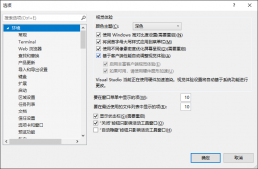本文实例为大家分享了使用C/C++实现linux下检测网络接口状态,供大家参考,具体内容如下
要写个检测网络接口链接状态的东西,又不喜欢不断的ping别的地址,也不想调用其他命令行工具来做这个,于是在google了n多内容未果之后,搜到个检测工具的源代码。
以下代码在fedora 9 / CentOS 5.2下调试通过:)
|
1
2
3
4
5
6
7
8
9
10
11
12
13
14
15
16
17
18
19
20
21
22
23
24
25
26
27
28
29
30
31
32
33
34
35
36
37
38
39
40
41
42
43
44
|
#include <sys/types.h>#include <string.h>#include <stdlib.h>#include <sys/ioctl.h>#include <stdio.h>#include <errno.h>#include <net/if.h> struct ethtool_value { __uint32_t cmd; __uint32_t data;}; /*return 1:has cable; return 0:no cable*/int detect_eth_cable(char *ifname) { struct ethtool_value edata; struct ifreq ifr; int fd = -1, err = 0; memset(&ifr, 0, sizeof(ifr)); strcpy(ifr.ifr_name, ifname); fd = socket(AF_INET, SOCK_DGRAM, 0); if (fd < 0) { //perror("Cannot get control socket"); return -1; } edata.cmd = 0x0000000A; ifr.ifr_data = (caddr_t)&edata; err = ioctl(fd, 0x8946, &ifr); if (err == 0) { fprintf(stdout, "Link detected: %s\n", edata.data ? "yes":"no"); } else if (errno != EOPNOTSUPP) { perror("Cannot get link status"); } return(edata.data==1 ? 1:0);}int main(int argc, char**argv){ detect_eth_cable("p1p1"); return 0;} |
其他代码:
|
1
2
3
4
5
6
7
8
9
10
11
12
13
14
15
16
17
18
19
20
21
22
23
24
25
26
27
28
29
30
|
int get_netportstatus(const char *interface) { char cmd[1024]; char *tt; FILE *fp; int devflag; devflag=get_netflag(interface); if (devflag==DEV_DOWN) { sprintf(cmd,"ifconfig %s up",interface); system(cmd); } sprintf(cmd,"ethtool %s | grep \"Link detected\" > /tmp/eth.temp",interface); system(cmd); if (devflag==DEV_DOWN) { sprintf(cmd,"ifconfig %s down",interface); system(cmd); } fp=fopen("/tmp/eth.temp","r"); if (fp==NULL) { system("rm -rf /tmp/eth.temp"); return -1; } fgets(cmd,1024,fp); fclose(fp); system("rm -rf /tmp/eth.temp"); tt=strstr(cmd,"no"); if (tt!=NULL) return LINK_DOWN; tt=strstr(cmd,"yes"); if (tt!=NULL) return LINK_UP; return -1;} |
|
1
2
3
4
5
6
7
8
9
10
11
12
13
14
15
16
17
18
19
20
21
22
23
24
25
26
27
28
29
30
31
32
33
34
35
36
37
38
39
40
|
#include <sys/types.h>#include <string.h>#include <stdlib.h>#include <sys/ioctl.h>#include <stdio.h>#include <errno.h>#include <net/if.h> struct ethtool_value { __uint32_t cmd; __uint32_t data;}; int main(int , char* []){ struct ethtool_value edata; int fd = -1, err = 0; struct ifreq ifr; memset(&ifr, 0, sizeof(ifr)); strcpy(ifr.ifr_name, "eth0"); fd = socket(AF_INET, SOCK_DGRAM, 0); if (fd < 0) { perror("Cannot get control socket"); return 70; } edata.cmd = 0x0000000a; ifr.ifr_data = (caddr_t)&edata; err = ioctl(fd, 0x8946, &ifr); if (err == 0) { fprintf(stdout, "Link detected: %s\n", edata.data ? "yes":"no"); } else if (errno != EOPNOTSUPP) { perror("Cannot get link status"); } return 0;} |
|
1
2
3
4
5
6
7
8
9
10
11
12
13
14
15
16
17
18
|
#include <net if.h=""> // IFF_RUNNING //如果网卡已脸上网线,返回0,否则返回-1.int check_nic(char *nic){ struct ifreq ifr; int skfd = socket(AF_INET, SOCK_DGRAM, 0); strcpy(ifr.ifr_name, nic_name); if (ioctl(skfd, SIOCGIFFLAGS, &ifr) < 0) { return -1; } if(ifr.ifr_flags & IFF_RUNNING) return 0; // 网卡已插上网线 else return -1;}</net> |
以上就是本文的全部内容,希望对大家的学习有所帮助,也希望大家多多支持服务器之家。
原文链接:https://blog.csdn.net/taiyang1987912/article/details/45695157














